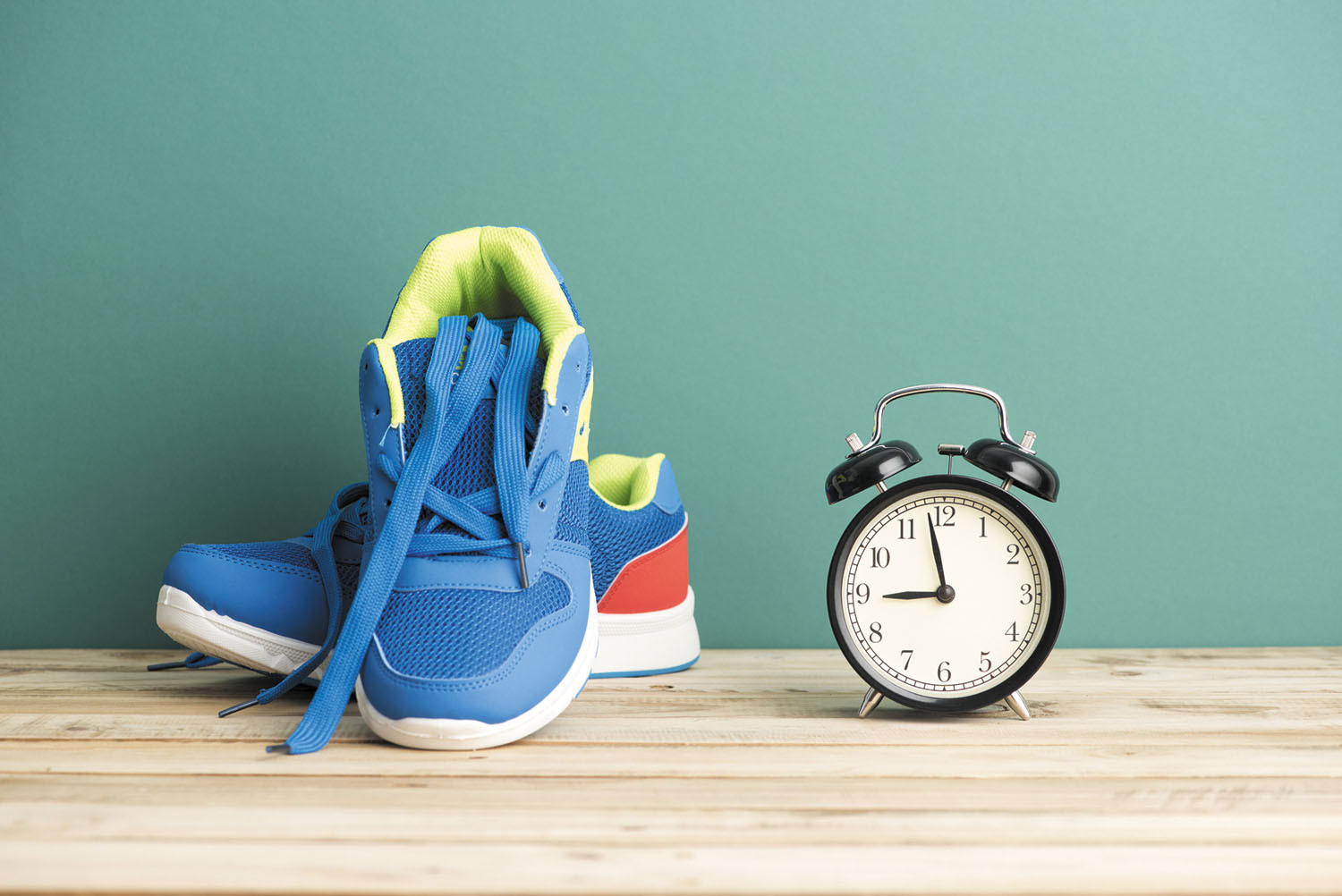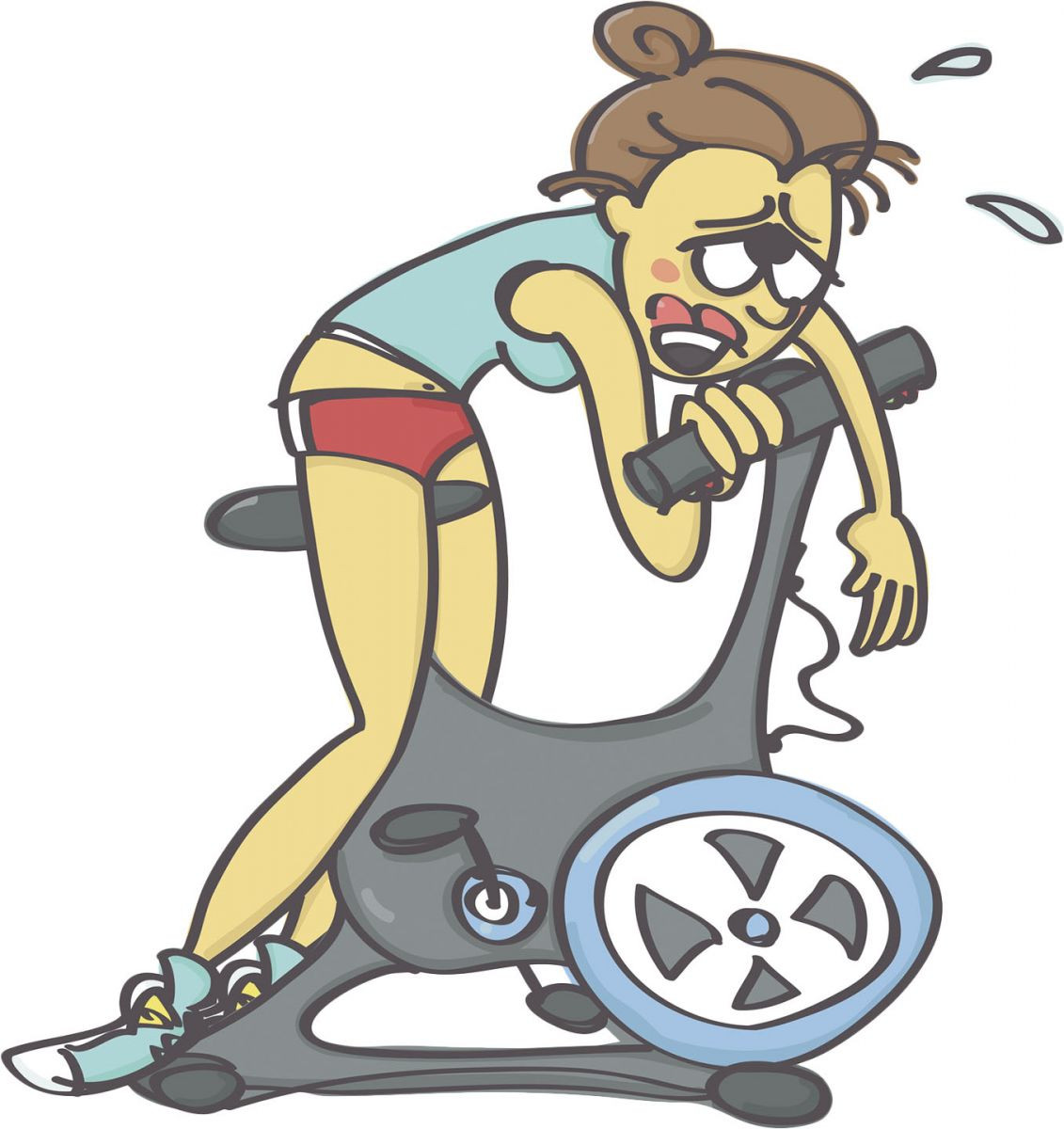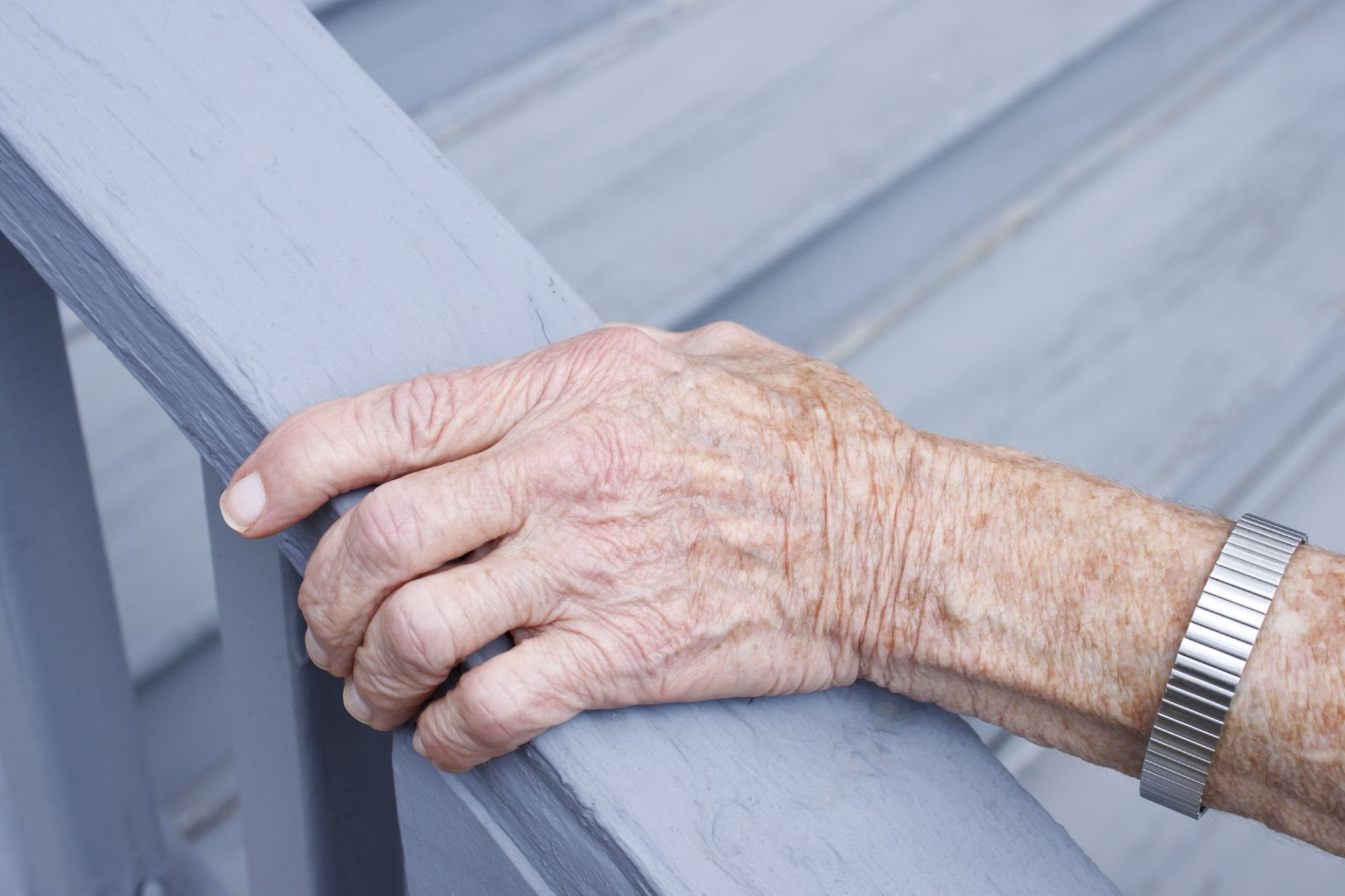
Counting steps is good — is combining steps and heart rate better?

Appendix pain: Could it be appendicitis?

Can saw palmetto treat an enlarged prostate?

How does Ozempic work? Understanding GLP-1s for diabetes, weight loss, and beyond

Zinc: What it does for the body, and the best food sources

Respiratory health harms often follow flooding: Taking these steps can help

Tips to leverage neuroplasticity to maintain cognitive fitness as you age

Can white noise really help you sleep better?

Celiac disease: Exploring four myths

What is prostatitis and how is it treated?
Staying Healthy Archive
Articles
Rethinking the 30-minute workout
You can still receive benefits from doing less than this recommended amount of aerobic exercise.
Image: © Masuti/Getty Images
Federal guidelines advocate 150 minutes of moderate-intensity aerobic activity per week for optimal health, which breaks down to 30 minutes, five days a week.
Yet the ongoing challenge is how to incorporate these minutes into your daily life. What if you can't find the time? And what happens to your health if you can't hit that number every week?
Is whole-body cryotherapy effective and safe?
Ask the doctors
Q. A friend of mine recommended I try whole-body cryotherapy for arthritis pain. Is this technology proven to work?
A. Whole-body cryotherapy is a technology designed to cool the body by exposing it to subzero temperatures (typically –200° to –300° F) for short sessions of two to four minutes. In some cases, people sit in a cold room; in others, they are placed in a special enclosure that cools them from the neck down. The theory behind cryotherapy is that cold temperatures can reduce inflammation and swelling in the body — much like an ice pack would on your swollen ankle. People who promote cryotherapy claim it can help treat symptoms related to numerous conditions, including arthritis, asthma, depression, and chronic pain, among others. They also claim that whole-body cryotherapy can aid in weight loss, soothe sore muscles, boost metabolism, and even get your blood circulating more efficiently. But while that may sound great, there's really no scientific proof that whole-body cryotherapy is safe, or any evidence to support claims about its health benefits, according to the FDA. And the FDA has not cleared or approved any whole-body cryotherapy device to treat any medical condition. In short, whole-body cryotherapy is still unproven and could potentially bring risks, so if you are considering using the technology, it's a good idea to discuss the decision with your doctor first.
How to get a move on
Even if you've been sedentary for many years, a slow and steady incremental approach can help you reach your workout goals.
Some people count the time since their last workout in hours or days. But you may count yours in years, maybe even decades. You know you need to start exercising to improve or maintain your health. But it's been so long, where do you even start?
The first thing you should know is it's not too late, says Dr. Beth Frates, an assistant professor of physical medicine and rehabilitation at Harvard Medical School and director of wellness programming for the Stroke Research and Recovery Institute at Spaulding Rehabilitation Hospital. Exercise can benefit almost everyone, regardless of age or health status. Provided you get your doctor's okay, you can start now.
Warning labels using images may steer consumers away from sugary drinks
Research we're watching
Image: © weiXx/Getty Images
Pictures may be more effective than words in helping consumers make healthier choices. A new study, published online June 18 by Psychological Science, found that using warning labels that included photos to outline the health risks of sugary drinks appeared to be more effective than written warnings in encouraging people to choose healthier drinks.
Researchers tested two different types of warnings for sugary beverages: warnings with photos and text, and text-only warnings. The warnings were placed near bottled and fountain drinks in a cafeteria at a Massachusetts hospital at different times. During the study period, there were more than 20,000 drinks sold.
A new app can help you chose herbal supplements wisely
Research we're watching
Wondering if that herb or herbal supplement is safe and effective? A new app can tell you. The National Center for Complementary and Integrative Health has introduced a new app called HerbList, which provides research-based information on various herbal products.
The app, which is available free on the Apple App store and Google Play store, is designed to give consumers important details on the safety and effectiveness of some of the most popular herbs and herbal supplements. While marketers may claim these products bring health benefits and are safe, that might not always be the case. This app can help you sort through the claims to determine what's real — and what's not.
6 ways you can prepare to “age well”
You're probably already doing a lot to ensure that you stay in good health and are able to enjoy your later years: eating right, exercising, getting checkups and screenings as recommended by your doctor. But it also makes sense to have some contingency plans for the bumps in the road that might occur.
- Adapt your home. Stairs, baths, and kitchens can present hazards for older people. Even if you don't need to make changes now, do an annual safety review so you can make necessary updates if your needs change.
- Prevent falls. Falls are a big deal for older people — they often result in fractures that can lead to disability, further health problems, or even death. Safety precautions are important, but so are exercises that can improve balance and strength.
- Consider your housing options. You might consider investigating naturally occurring retirement communities (NORCs). These neighborhoods and housing complexes aren't developed specifically to serve seniors — and, in fact, tend to host a mix of ages — but because they have plenty of coordinated care and support available, they are senior-friendly.
- Think ahead about how to get the help you may need. Meal preparation, transportation, home repair, housecleaning, and help with financial tasks such as paying bills might be hired out if you can afford it, or shared among friends and family. Elder services offered in your community might be another option.
- Plan for emergencies. Who would you call in an emergency? Is there someone who can check in on you regularly? What would you do if you fell and couldn't reach the phone? Keep emergency numbers near each phone or on speed dial. Carry a cellphone (preferably with large buttons and a bright screen), or consider investing in some type of personal alarm system.
- Write advance care directives. Advance care directives, such as a living will, durable power of attorney for health care, and health care proxy, allow you to explain the type of medical care you want if you're too sick, confused, or injured to voice your wishes. Every adult should have these documents.
To learn more ways to enjoy independence and good health in your senior years, buy Living Better, Living Longer, a Special Health Report from Harvard Medical School.
Ask the doctor: Coconut oil and health
ARCHIVED CONTENT: As a service to our readers, Harvard Health Publishing provides access to our library of archived content. Please note the date each article was posted or last reviewed. No content on this site, regardless of date, should ever be used as a substitute for direct medical advice from your doctor or other qualified clinician.
Q. I have started noticing more coconut oil at the grocery store and have heard it is better for you than a lot of other oils. Is that true?
Safe driving protects your brain
Of course, observing safe driving habits is a common-sense practice that can help you avoid injury, but these driving guidelines can help protect your brain as well.

Counting steps is good — is combining steps and heart rate better?

Appendix pain: Could it be appendicitis?

Can saw palmetto treat an enlarged prostate?

How does Ozempic work? Understanding GLP-1s for diabetes, weight loss, and beyond

Zinc: What it does for the body, and the best food sources

Respiratory health harms often follow flooding: Taking these steps can help

Tips to leverage neuroplasticity to maintain cognitive fitness as you age

Can white noise really help you sleep better?

Celiac disease: Exploring four myths

What is prostatitis and how is it treated?
Free Healthbeat Signup
Get the latest in health news delivered to your inbox!
Sign Up











